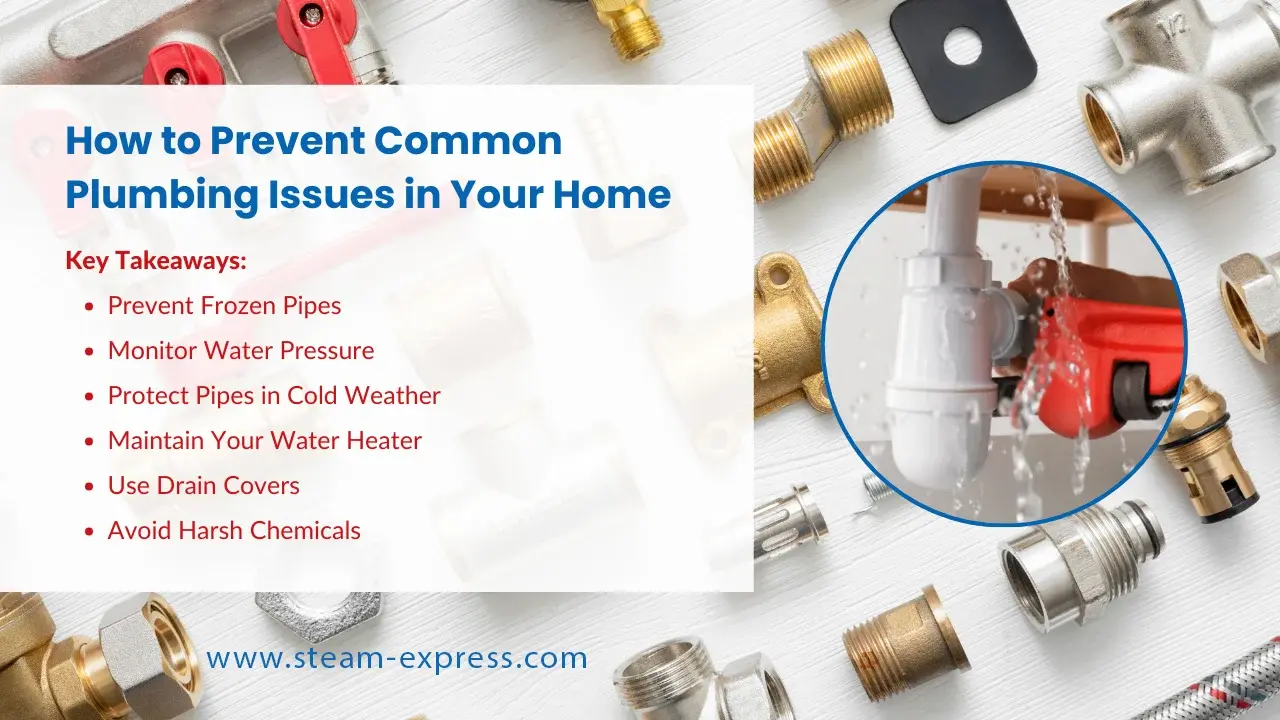Plumbing problems can disrupt your daily routine and lead to costly repairs if not addressed promptly. Understanding the common plumbing issues that homeowners face can help you take preventive measures and make informed decisions about repairs.
Maintaining your plumbing system requires a proactive approach. Regular inspections are essential; schedule them at least once a year to identify potential issues before they escalate. A qualified plumber can check for leaks, pressure inconsistencies, and other hidden problems that might go unnoticed.
Another effective strategy involves monitoring water usage. Be mindful of how much water you consume daily; excessive use can put a strain on your plumbing system. Consider installing water-saving fixtures like low-flow faucets and showerheads to reduce consumption without sacrificing comfort.
Key Takeaways:
- Prevent Frozen Pipes: Insulate exposed pipes in unheated areas and allow faucets to drip during extreme cold to prevent freezing.
- Monitor Water Pressure: Check your home’s water pressure (ideally 40-60 psi) using a gauge; install a pressure regulator if it’s too high to protect your plumbing.
- Protect Pipes in Cold Weather: Shut off the main water supply and drain pipes if leaving home for an extended period in winter.
- Maintain Your Water Heater: Flush your water heater annually to remove sediment buildup and improve efficiency.
- Use Drain Covers: Install covers on sinks, bathtubs, and shower drains to prevent debris from causing clogs.
- Avoid Harsh Chemicals: Refrain from using harsh chemical drain cleaners, as they can damage pipes; opt for natural alternatives like baking soda and vinegar instead.
Clogged Drains and Toilets
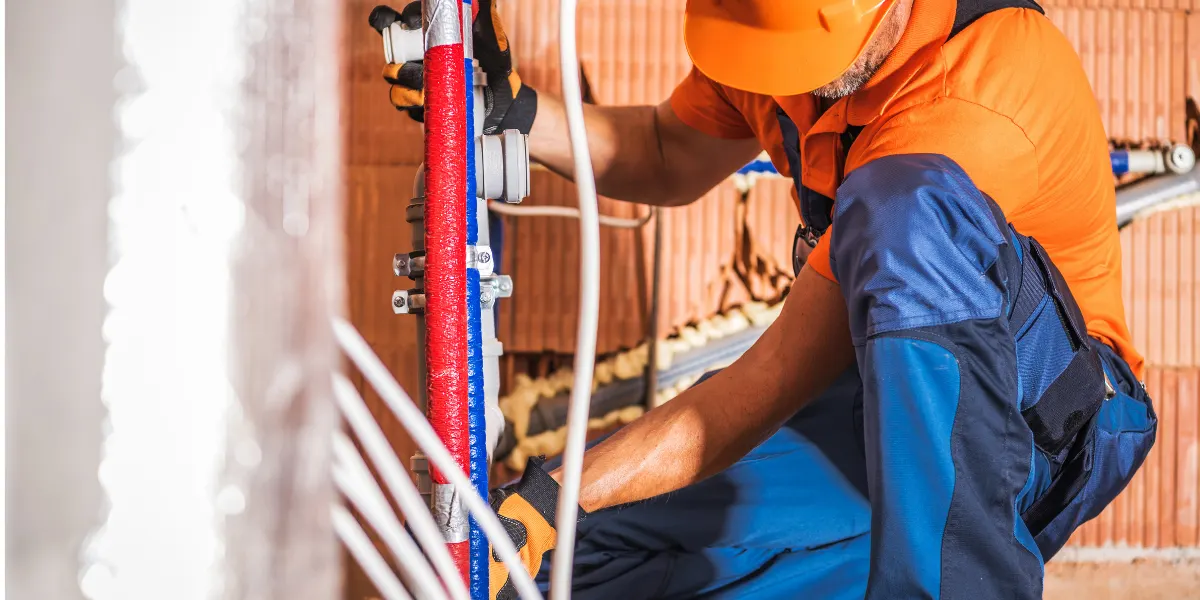 Clogged drains and toilets are among the most common plumbing issues. To prevent these problems, avoid flushing non-biodegradable items such as wipes, paper towels, or feminine hygiene products down the toilet. Be cautious about what you put down the sink; fatty substances and food scraps can accumulate over time and lead to clogs. Using a drain strainer can help catch debris before it enters the plumbing system.
Clogged drains and toilets are among the most common plumbing issues. To prevent these problems, avoid flushing non-biodegradable items such as wipes, paper towels, or feminine hygiene products down the toilet. Be cautious about what you put down the sink; fatty substances and food scraps can accumulate over time and lead to clogs. Using a drain strainer can help catch debris before it enters the plumbing system.
Regularly cleaning your drains can also help prevent clogs. Consider using a mixture of vinegar and baking soda to break down minor buildup in your pipes. Pour one cup of baking soda followed by one cup of vinegar down the drain, let it sit for about 30 minutes, and then flush with hot water. This simple maintenance routine can keep your drains flowing freely.
Leaking Pipes
Leaking pipes can cause significant damage to your home if left unchecked. Also check visible pipes for signs of corrosion or dampness. Pay special attention to areas prone to temperature changes, such as basements and attics. Insulating exposed pipes can help prevent freezing during winter months, which is a common cause of leaks.
Maintain proper water pressure in your plumbing system. High water pressure can strain pipes and lead to leaks or bursts. You can monitor water pressure with a gauge, and if you notice it is consistently above 60 psi, consider installing a pressure regulator.
Worn-out washing machine hoses are another common source of leaks. Inspect these hoses for signs of wear and tear, such as cracks or bulging. Replace them every three to five years, or sooner if you notice any issues. This simple preventative measure can save you from potential flooding and water damage.
Water Heater Maintenance
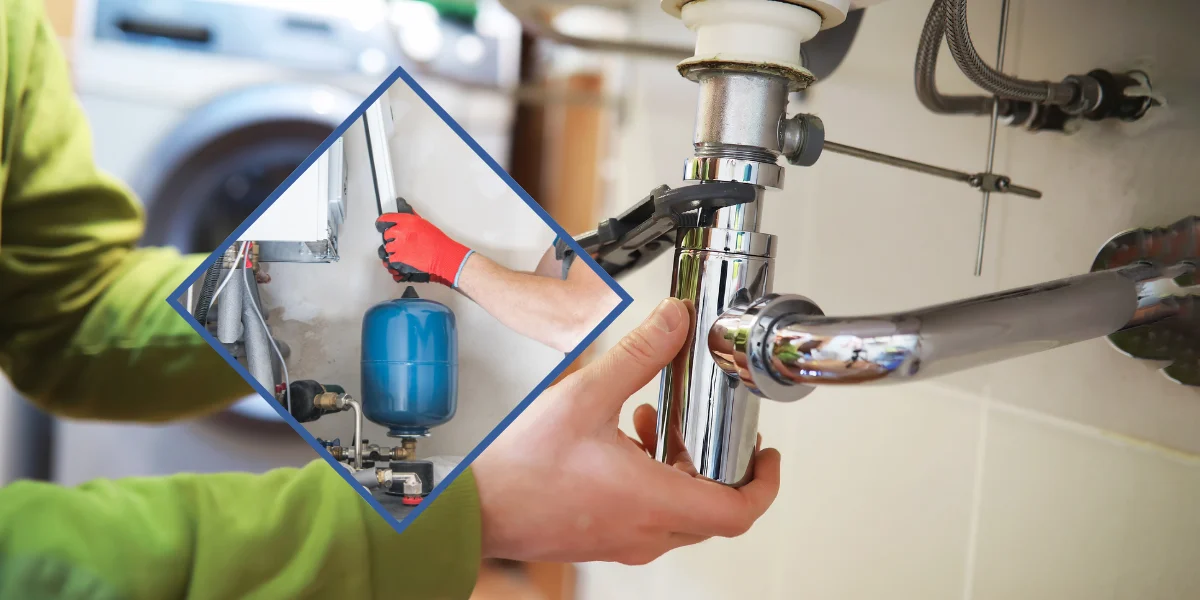
Your water heater is another vital component of your plumbing system that requires regular attention. Sediment buildup in the tank can reduce efficiency and lead to costly repairs over time. Flushing your water heater annually helps remove sediment and prolongs its lifespan. Check the temperature setting on your water heater. Keeping it at 120 degrees Fahrenheit is typically sufficient for most households and reduces the risk of scalding while also saving energy.
Inspect the anode rod in your water heater every couple of years. This rod helps prevent corrosion inside the tank. If it’s significantly corroded, replace it to extend the life of your water heater. Consider checking for any leaks around the base of the water heater and ensuring that the pressure relief valve is functioning properly. This valve acts as a safety feature, releasing excess pressure when necessary to prevent tank failure.
Preventing Frozen Pipes
During colder months, frozen pipes can be a major concern. To prevent this issue, ensure that all exposed pipes are insulated with foam sleeves or other insulating materials. Keep cabinet doors open in areas where plumbing is located, such as under sinks, to allow warm air to circulate around the pipes. Let faucets drip slightly during extreme cold spells; this can relieve pressure and prevent ice from forming.
Regular Maintenance Checks
Scheduling routine maintenance checks can significantly reduce the likelihood of plumbing issues. Try to hiring a licensed plumber for an annual inspection of your entire plumbing system of your entire plumbing system. These professionals can identify potential problems before they escalate, ensuring that everything functions optimally. During these visits, they can check for leaks, corrosion, and any signs of wear that may go unnoticed.
Educate Yourself on Your Plumbing System
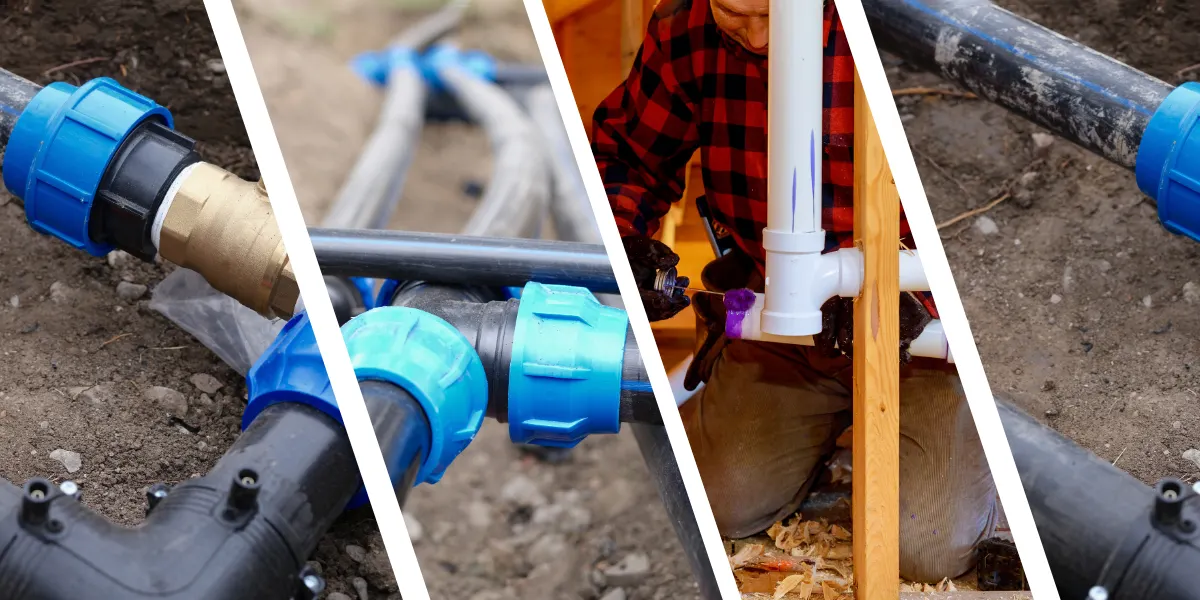
Understanding the basics of your plumbing system can empower you to identify issues early on. Learn where the main water shut-off valve is located, as well as the individual shut-offs for sinks, toilets, and appliances. Knowing how to quickly turn off the water supply can prevent extensive damage in case of a major leak.
Familiarize yourself with common plumbing terms and concepts, such as the function of drains, traps, vents, and sewer lines. This knowledge will help you communicate effectively with plumbers if you need to call for professional help and ensure that you understand the work being done on your plumbing system.
Proper Use of Drains
Improper use of drains is a leading cause of clogs and plumbing issues. Be mindful of what goes down your sinks, toilets, and tubs. Avoid flushing anything other than human waste and toilet paper to prevent blockages in your sewer line. For kitchen sinks, consider using a sink strainer to catch food particles and prevent them from going down the drain. Grease and oil should never be poured down the kitchen sink, as they can solidify and cause clogs. Instead, let them cool and dispose of them in the trash.
In bathrooms, be cautious about what you put down the drain. Hair is a common culprit for clogs, so using a hair catcher in your shower or bathtub can help minimize the amount that enters your plumbing system.
Inspect and Maintain Your Pipes
Regular inspections of your pipes can help you catch potential issues before they escalate. Look for signs of corrosion, leaks, or discoloration in visible pipes. Pay special attention to areas under sinks, around toilets, and in basements where pipes are often exposed.
During colder months , it’s essential to be vigilant about preventing frozen pipes. Insulate exposed pipes in unheated areas and allow faucets to drip during extreme cold spells to relieve pressure and prevent freezing.
Monitor Your Water Pressure
High water pressure can strain your plumbing system and lead to leaks or bursts. Use a water pressure gauge to check the pressure in your home—ideally, it should be between 40-60 psi (pounds per square inch). If you find that your water pressure is too high, consider installing a pressure regulator to help maintain safe levels. A pressure regulator can reduce the incoming water pressure from the main supply line, protecting your pipes and fixtures from potential damage.
Protect Your Pipes During Extreme Weather
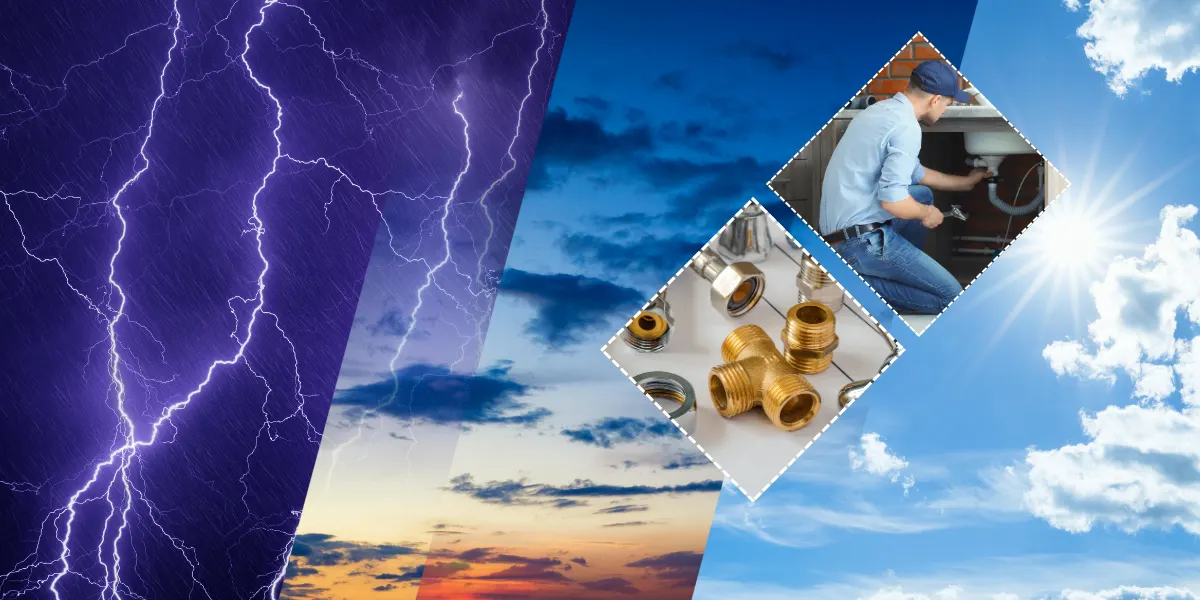
Extreme temperatures can wreak havoc on your plumbing system, especially if you live in areas prone to freezing conditions. When temperatures drop, pipes can freeze and potentially burst, leading to significant water damage. To prevent this, insulate exposed pipes in unheated areas like basements, attics, and garages . Use foam pipe insulation or heat tape to keep these pipes warm. Additionally, let faucets drip during extremely cold weather to relieve pressure and reduce the risk of freezing.
If you plan to be away from home for an extended period in winter, consider shutting off the main water supply and draining your pipes by opening faucets and flushing toilets. This will help prevent any remaining water in the pipes from freezing and causing breaks. Make sure to inform anyone who may have access to your home about the measures you’ve taken, so they can monitor for any issues while you’re away.
Maintain Your Water Heater
Your water heater is a crucial component of your plumbing system, and proper maintenance can prolong its lifespan and improve efficiency. Maintain your water heater, flush it at least once a year to remove sediment buildup that can reduce heating efficiency. Sediment can accumulate at the bottom of the tank and lead to corrosion over time. To flush the tank, turn off the power or gas supply, connect a garden hose to the drain valve at the bottom of the tank, and let the water flow out until it runs clear. This process will help remove any sediment that has built up.
Use Drain Covers
To prevent debris from entering your drains and causing clogs, install drain covers in sinks, bathtubs, and shower drains. These covers can catch hair, food particles, and other debris that could otherwise accumulate in your pipes. Regularly clean the covers to ensure they function effectively. By keeping these materials out of your plumbing system, you reduce the likelihood of clogs that can lead to more serious plumbing issues.
Be Cautious with Chemicals
Avoid using harsh chemical drain cleaners as they can damage your pipes and create more problems in the long run. Many of these products contain corrosive substances that can erode pipe materials, leading to leaks and additional repairs. Instead of relying on chemical cleaners, consider using natural alternatives like baking soda and vinegar for minor clogs. This safer method can help dissolve buildup without harming your plumbing system.
Summary
Here we have provided practical tips for homeowners to prevent common plumbing issues. It emphasizes the importance of regular maintenance, such as inspecting pipes for leaks, cleaning out drains to avoid clogs, and checking water pressure to ensure it stays within a safe range. The recommended proper disposal methods for waste and grease, using drain guards, and being mindful of what goes down toilets to reduce the risk of blockages. We also give tips homeowners practical strategies to prevent common plumbing problems. It highlights the significance of regular maintenance, including checking for leaks, cleaning drains to prevent clogs, and monitoring water pressure. It suggests proper disposal methods for waste and grease, using drain guards, and being cautious about what is flushed down toilets to minimize the risk of blockages.


